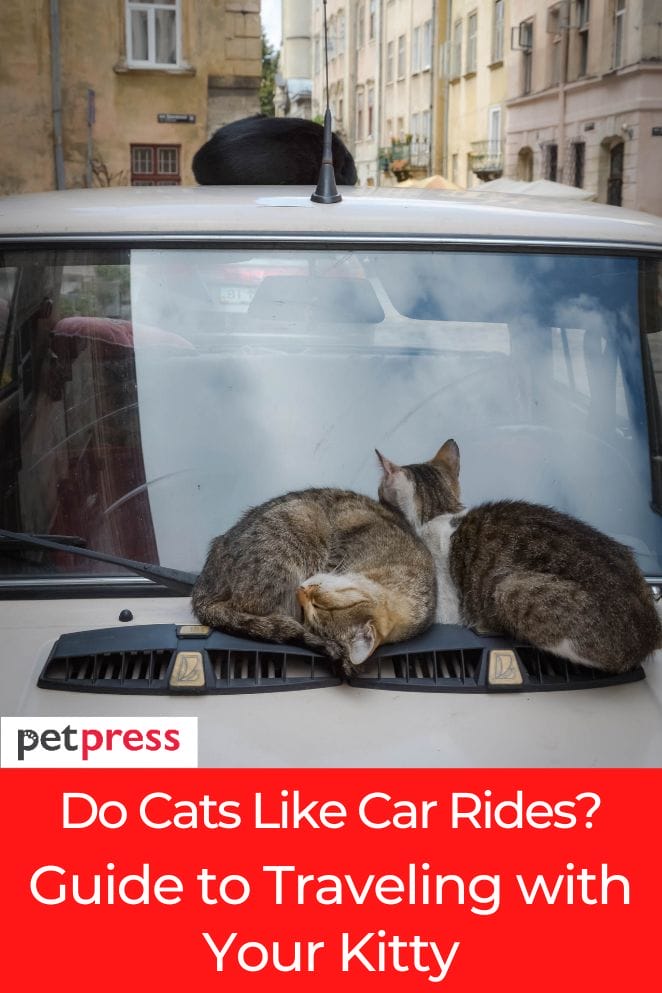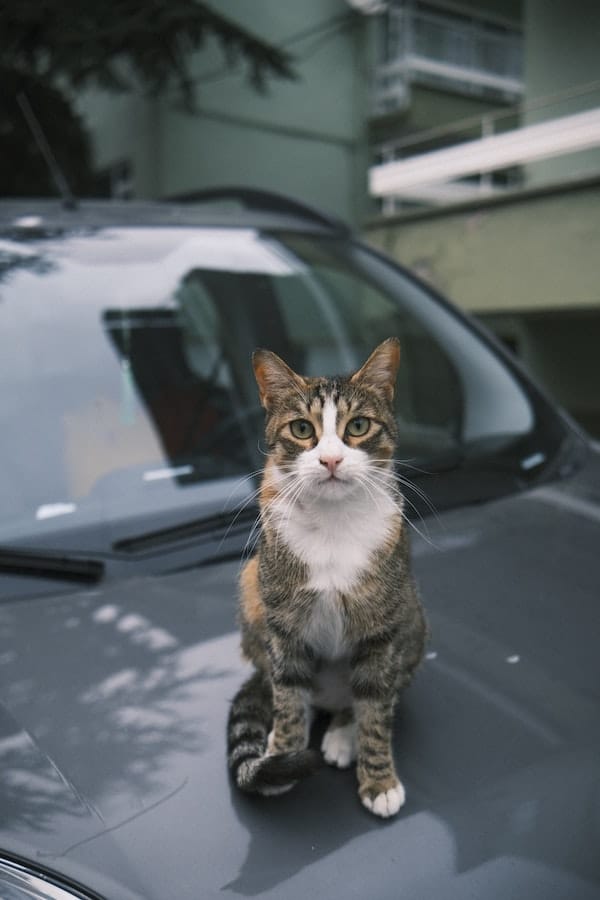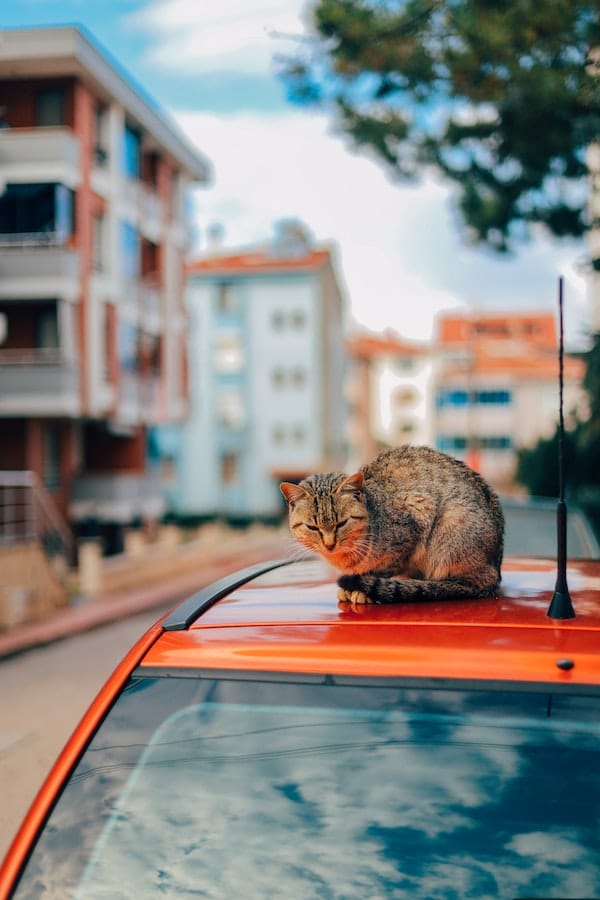
Taking your cat for a ride in the car can be a mixed bag – some felines revel in the experience, while others decidedly do not.
If you’ve ever found yourself wondering whether your furry friend is secretly enjoying those road trips or utterly despising them, you’re in good company.
In this article, we’re diving into the intriguing world of cats and car rides, aiming to demystify their perspective, pinpoint the telltale signs of discomfort, and provide you with some invaluable insights for smoother, more enjoyable travels with your cherished kitty.
Cat’s Perspective on Car Rides
Seeing things from a cat’s perspective, car rides can feel like an unexpected journey into the unknown, much like stepping into an alien spacecraft.
The strange sounds, vibrations, and sudden movements that come with being in a moving vehicle can be downright bewildering and overwhelming for our feline companions.
Cats are renowned for their love of routine and familiarity, so any disruption to their established order can swiftly spark stress and anxiety.
However, it’s essential to note that not all cats respond to car rides in the same manner.
While many may find the experience utterly disconcerting, others might exhibit an intriguing mix of curiosity and excitement when faced with a car journey.
This diversity in reactions further adds to the mystique of our enigmatic feline friends.

Signs Your Cat Dislikes Car Rides
Hiding
One unmistakable indicator of your cat’s unease with car rides is their immediate instinct to disappear the moment they catch sight of the carrier or hear the rumble of the car engine.
It’s as if they’re trying to vanish into thin air, and this reaction speaks volumes about their discomfort and apprehension.
Vocalization
Another clear sign of distress during a car journey is when your usually composed feline friend begins to vocalize excessively.
You might hear them meowing incessantly, yowling in agitation, or even hissing in a display of their unease.
These vocal outbursts are their way of expressing their discomfort and anxiety.
Trembling or panting
When it comes to physical manifestations of anxiety, keep an eye out for trembling or rapid breathing in your cat.
These telltale signs indicate that the stress levels have gone through the roof, and your kitty is feeling anything but relaxed.
Drooling
In some cases, stress or anxiety during car rides can prompt excessive drooling in cats.
If you notice your cat’s mouth suddenly becoming more like a leaky faucet, it’s a clear indication that they’re not at ease with the situation.
Preparing Your Cat for Car Travel
To make car rides more tolerable for your cat, consider these preparations:
Acclimate your cat
One effective strategy to help your cat become more comfortable with car rides is to acclimate them gradually.
Begin by allowing your feline friend to explore the car environment while it’s parked and the engine is off.
This step-by-step introduction can help them become more familiar with the surroundings and reduce the shock of being in the car.
Comfortable carrier
Opt for a well-ventilated and secure cat carrier that provides a safe and cozy space for your cat.
Enhance their comfort by adding a soft blanket and including some of their favorite toys inside the carrier.
Creating a reassuring and familiar environment can significantly ease their anxiety during car rides.
Short practice drives
Once your cat has grown accustomed to the car’s interior, embark on short practice drives around the neighborhood.
These brief excursions serve as a positive way to familiarize your cat with the motion of the car.
Gradually extending the duration of these trips can help them build tolerance and confidence when it comes to traveling by car.

Tips for a Smoother Car Ride with Your Cat
Use calming aids
For additional support in alleviating your cat’s anxiety during car rides, consider consulting your veterinarian.
They can recommend suitable calming aids or pheromone sprays designed to reduce stress levels in felines.
These aids can be instrumental in creating a more relaxed and positive travel experience for your cat.
Bring familiar items
When preparing for a car journey with your cat, don’t forget to pack some familiar items from home.
Bringing along their favorite blanket, toy, or any cherished possessions can provide a sense of comfort and reassurance, helping to ease their anxiety.
Secure the carrier
Ensuring that your cat’s carrier is securely fastened is crucial.
This prevents any unwanted movement during the ride, which can contribute to your cat’s unease.
A securely fastened carrier promotes stability and safety for your feline companion.
Keep the environment calm
To create a serene atmosphere during car rides, consider playing soothing music or maintaining a quiet environment within the vehicle.
Reducing noise and disruptions can go a long way in minimizing stress and helping your cat feel more at ease throughout the journey.
Conclusion
The extent to which cats enjoy car rides varies greatly and hinges on their unique personalities and previous encounters with travel.
To ensure your cat’s welfare during journeys, it’s vital to comprehend their point of view and be attuned to any signs of unease.
By heeding the advice provided in this article, you have the opportunity to transform car rides into a more pleasant and agreeable experience for your beloved feline companion.
FAQs
While some cats can become accustomed to car rides with gradual training, not all cats will ever truly enjoy them. It’s essential to prioritize their comfort and well-being.
There’s no strict breed-related rule, as individual temperament plays a more significant role in a cat’s preference for car rides.
It’s best to feed your cat a light meal a few hours before the ride to prevent motion sickness. However, consult your veterinarian for personalized advice.


GIPHY App Key not set. Please check settings